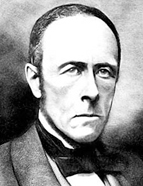

The adoption of the novel form, as well as its use to write about bygone experiences was instrumental in such undertaking. New material support and editorial practices such as the gradual publication of texts in regular instalments and the partial sale of books in the form of issues were formal innovations that fostered an unprecedented boost in the possibilities of historical knowledge dissemination. Thus, the historical novel became an effective tool to educate the middle classes in the values of political liberalism (Matos, Historiografia e memória nacional [Historiography and national memory], 131-163). However, Herculano embraced that literary genre not so much to promote something along the lines of a cultural revolution but rather to facilitate a conciliation between liberalism and Christianity. Perhaps for that reason, his fiction and contents, although presented innovatively, often reflect retrograde values and views of traditionalist-Christian or aristocratic provenance. (Saraiva, Herculano e o Liberalismo [Herculano and Liberalism], 44-49; 148-152).
In addition to the intention of attuning Christianity and liberalism, Herculano also felt that the public's sense of belonging to the nation called for renewal. Characterized, as already mentioned, by manifest educational goals, this renewal effort culminated in a significant reconfiguration of the close and distant relations between past and present to which Portuguese historical culture had hitherto been accustomed. Historical attention and aesthetics were removed from the classic past, so beloved by previous generations and exalted as exemplary in Arcadian pastoral poetry. In the same tone of anti-Classicism, the importance of political and cultural events from the Renaissance was challenged (Herculano, “Elogio histórico” [“Historical eulogy”], 111-114). By contrast, in the wake of the medieval example of authors such as James Macpherson and Walter Scott, Herculano contributed to the promotion of a novel enhancement of what was commonly viewed as the initial centuries of the Portuguese nation. Such constellation of elective affinities with the past is a feature not only of fiction but also – as will be addressed further ahead - of the historical writings of Herculano.
The enhancement of the Middle Ages, however, did not stem merely from mimicry of aesthetic ascendancy, but also from Herculano’s perception that there were revealing analogies between medieval Portugal and the cultural and political scenario triggered by the Civil War. In both instances, historical experience was characterized not only by violence, excessive passions, and civilizational hazards, but also associated with a certain sense of childish purity, a creative openness to the modelling of practices and institutions. Notwithstanding all such negativity, these times were favourable to the construction of collective identities, of historical beginnings and resumptions.
